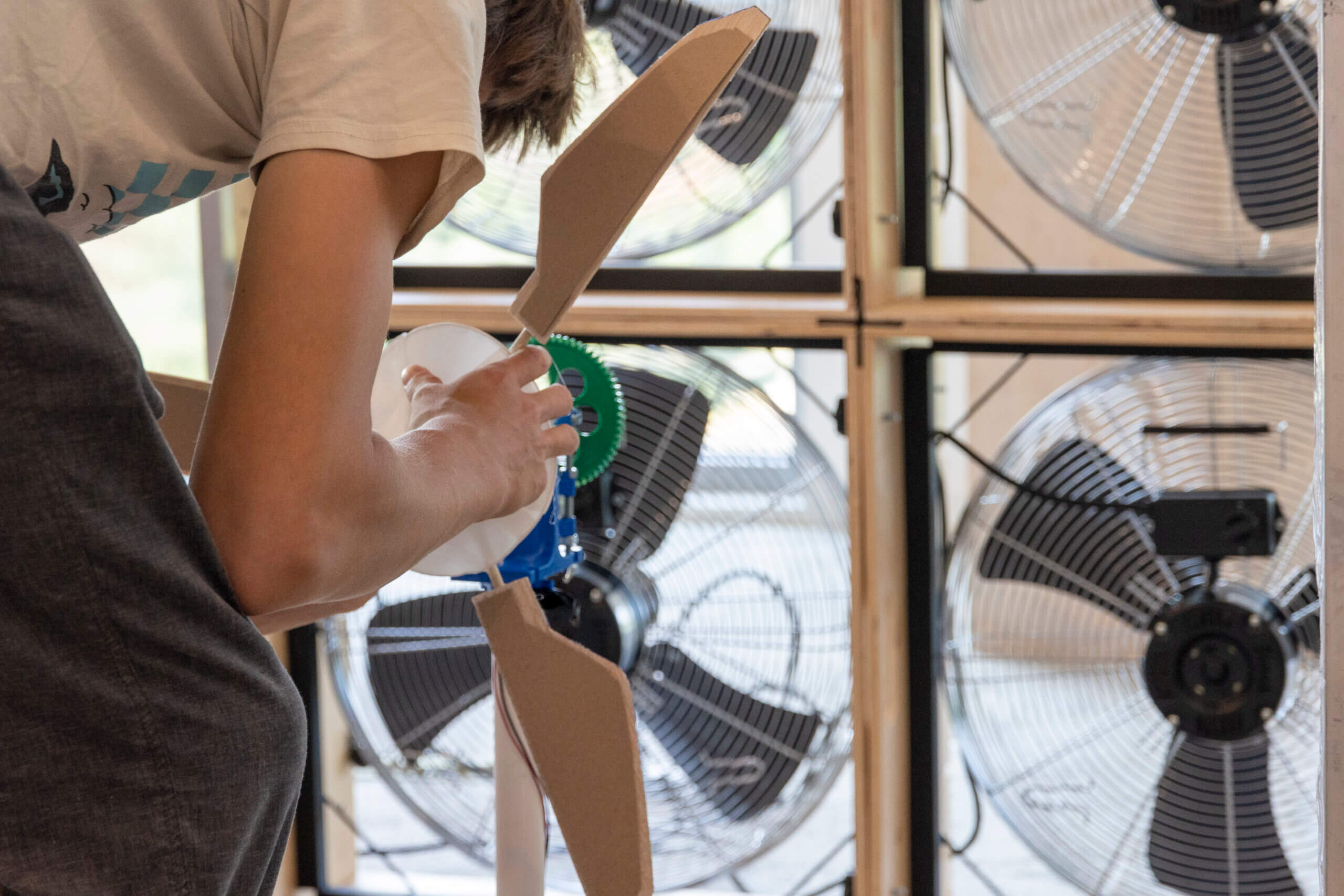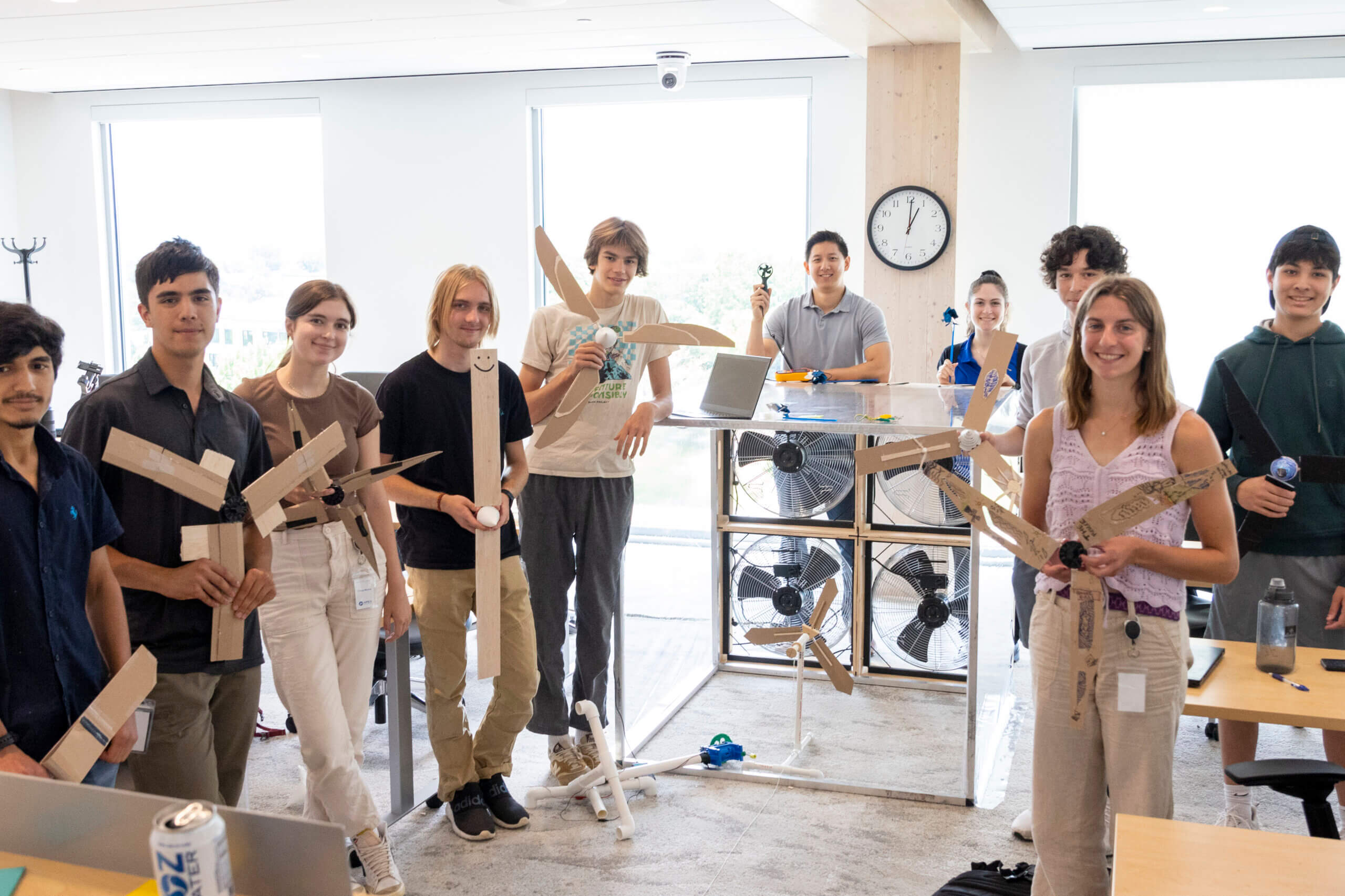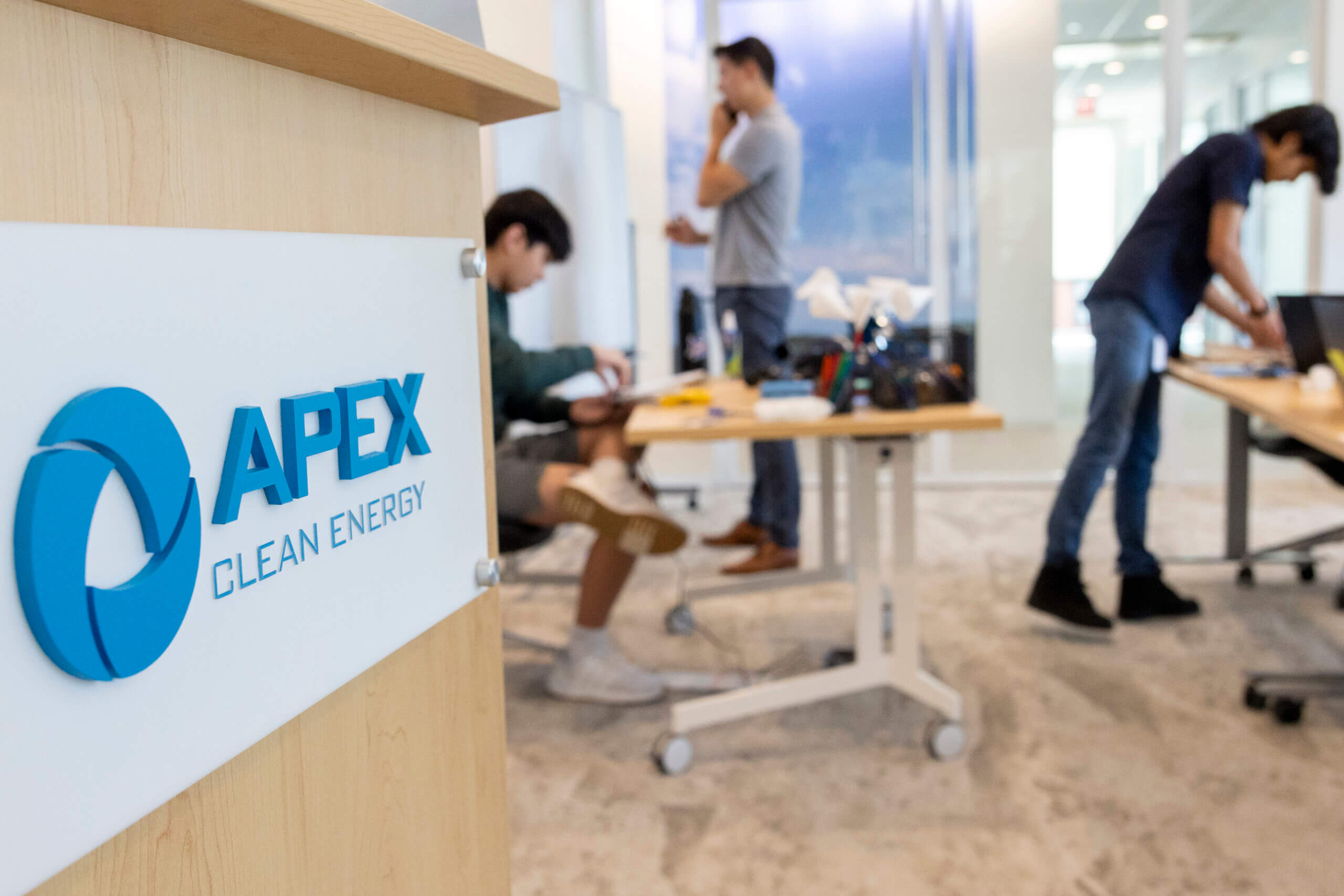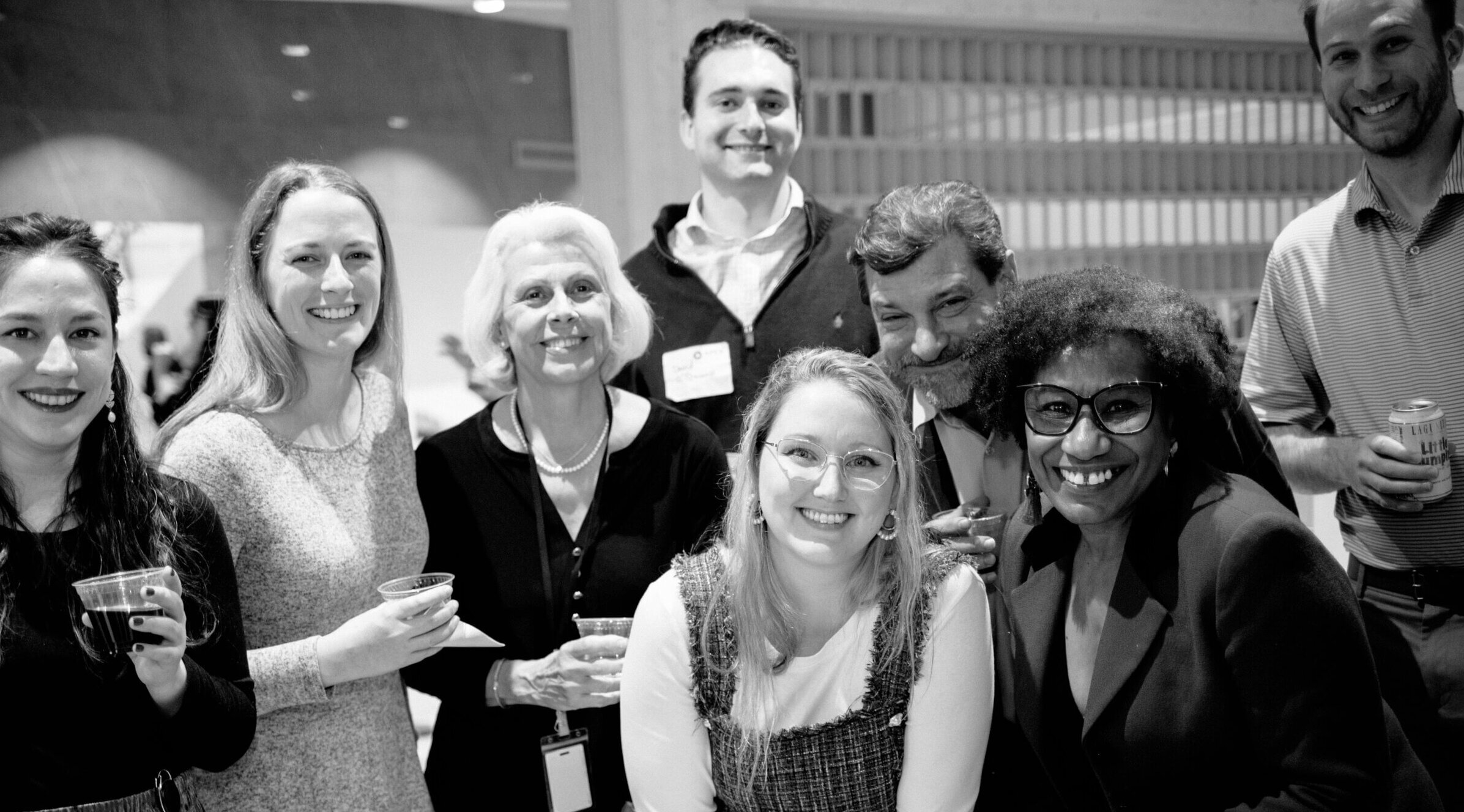Empowering Minds, Energizing Change
High School Students Explore the Potential of Clean Energy Through the Inaugural Apex Academy
The energy transition is the most crucial evolution of our lifetimes.
But accelerating the shift to clean energy will not start and end with today’s workforce—it is a multigenerational effort. Apex is committed to preparing and galvanizing today’s youth to take up the cause and help accomplish its vision.
To inspire the workforce of tomorrow, Apex has spearheaded several youth- and community-centered initiatives. In addition to running a robust and diverse internship program—which sources and trains top talent from across the country—Apex opens its doors to community and student groups for tours of its sustainable headquarters and offers a free, annual online “Clean Energy Crash Course” to undergraduate students to illustrate employment opportunities in renewable energy. Now, the company has rallied behind another initiative: the Apex Academy.
An Experiential Education
An immersive weeklong workshop, Apex Academy introduces high school students to engineering concepts and career opportunities within the industry.
“As we continue to accelerate the shift to clean energy, we’ll need a much larger workforce. Apex has a wonderful internship program targeting college and graduate students—but how can we get young people engaged in this industry even earlier?’” said Wind Resource Analyst Nicole Peterson, an Apex Academy instructor who played a central role in executing a curriculum that encouraged students to gain hands-on experience, connect with industry professionals, and discover how clean energy could turn into an interest worth exploring in college and beyond.

“Educating high school students about clean energy is crucial, because when they go to college, they’ll have in the back of their minds that this is a career path that they can pursue,” said Kelsey Chavers, GIS analyst and Apex Academy instructor. “Several of the students knew they wanted to be engineers, but they didn’t know specifically what kind—so we introduced them to our electrical and civil engineers to show them the numerous ways you can enter this field.”
In addition to introducing wind engineering concepts to this year’s cohort, the program focused on fostering an inclusive environment—and showing how the energy transition is a massive undertaking that unites professionals of varied educations, backgrounds, and interests. “We wanted students to know that there is a place for everyone within the renewable energy industry,” Peterson said. “There are so many different paths you can take, so many things you can do—whether it be in engineering, finance, or GIS. There really is something for everyone, and it’s incredibly important. It’s the future.”
Apex’s instructors guided students through immersive activities that cultivated practical knowledge and engagement with wind energy technologies. Activities ranged from mapmaking and creating and calibrating a cup anemometer to designing and optimizing their own wind farm using state-of-the-art software. During a turbine blade testing exercise, students utilized a wind tunnel and iterated on their designs to address challenges and make improvements related to accuracy, efficiency, and energy production based on real-time energy readings—simulating the evolution of Apex’s actual projects and processes.
“At first, I thought Apex Academy would be more education-based, where we would sit and learn about the company,” said Ezhar Zahid, a rising senior at Charlottesville High School. “But on the first day, when we started using the GIS systems, I realized that this was going to be a hands-on experience—which I prefer, because I can interact with the process, rather than theoretically analyze it in my head. I got more interested in clean energy because of Apex—and now I have resources that I can look into after school finishes.”

Students maintained autonomy over their creations, while also learning from the expertise of the Apex instructors—and from their fellow students. Throughout the activities, students showed and compared their work with the rest of the group’s, leading to refinements in the designs and fostering a friendly competitive spirit. The open-ended structure of the week enriched students’ understanding of real engineering concepts—creating a memorable, meaningful learning process. Students left Apex Academy with a sense of accomplishment and a deep appreciation for collaboration.
“I only knew one of the students from my school—everyone else was new,” Zahid said. “We were able to work as a team, get involved in projects together, and learn about each other.”
“We wanted students to know that there is a place for everyone within the renewable energy industry, whether it be in engineering, finance, or GIS.”
“The goal was just to get students interested,” Human Resources Manager Marsha Burger explained. “We had a wonderful cohort of students come through, and as they went through each day, more and more said, ‘I’m going to tell my friends about this next year. You’re going to have so many people next year.’ It was rewarding to know we made such an impact in five days.”
The success of the inaugural Apex Academy is a testament to both the company’s and its employees’ commitment to shaping future changemakers. The energy transition holds immense promise—and Apex will be there to catalyze the personal and professional growth of the next generation of industry leaders.


